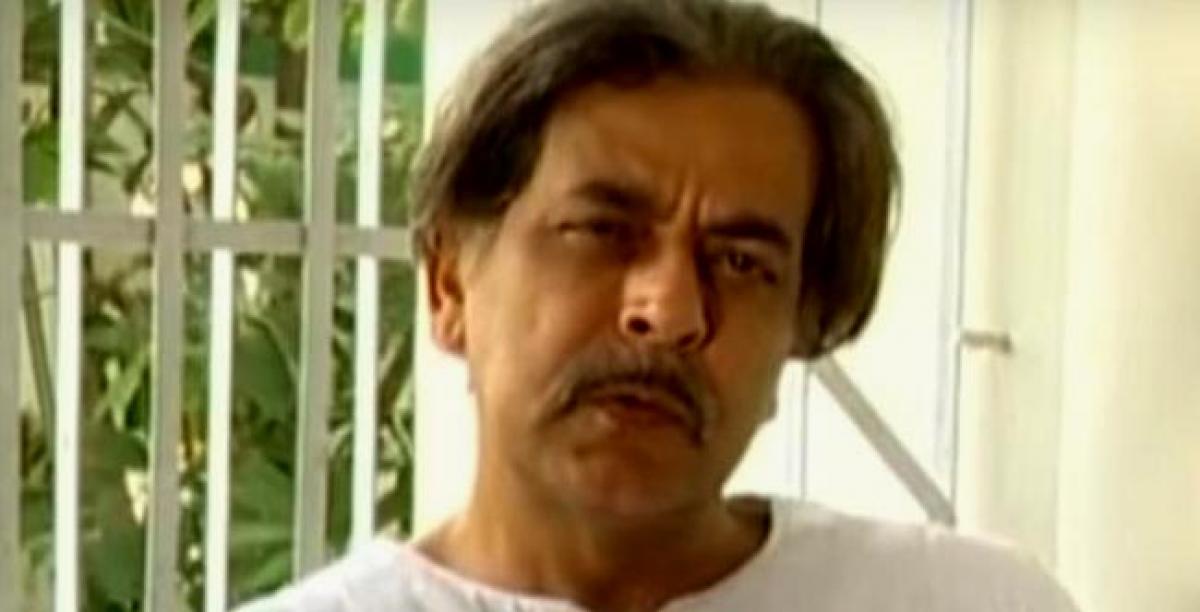Live
- Chanchalguda Jail Officials Say They Haven't Received Bail Papers Yet, Allu Arjun May Stay in Jail Tonight
- BJP leaders present evidence of illegal voters in Delhi, urge EC for swift action
- Exams will not be cancelled: BPSC chairman
- Nagesh Trophy: Karnataka, T.N win in Group A; Bihar, Rajasthan triumph in Group B
- YS Jagan condemns the arrest of Allu Arjun
- Economic and digital corridors to maritime connectivity, India and Italy building vision for future, says Italian Ambassador
- SMAT 2024: Patidar's heroics guide Madhya Pradesh to final after 13 years
- CCPA issues notices to 17 entities for violating direct selling rules
- Mamata expresses satisfaction over speedy conviction in minor girl rape-murder case
- Transparent Survey Process for Indiramma Housing Scheme Directed by District Collector
Just In

At a time when Pakistan\'s cinema industry is undergoing a resurgence, some of the country\'s filmmakers feel that unlike Indian cinema -- which awaits a long-awaited change in its film certification process -- budgets are currently a bigger constraint for them.
New Delhi: At a time when Pakistan's cinema industry is undergoing a resurgence, some of the country's filmmakers feel that unlike Indian cinema -- which awaits a long-awaited change in its film certification process -- budgets are currently a bigger constraint for them.
Filmmakers like Khalid Ahmed, Sabiha Sumar and Shahbaz Sumar from Pakistan shared their concerns in a tete-a-tete with IANS during a recent visit to the capital for the Jagran Film Festival, where their movies -- a part of Indo-Pak Zeal For Unity peace initiative by Zee Entertainment Enterprises Ltd -- were screened.
"The Pakistani film industry - often tagged as Lollywood - died in the 1980s. There was no state support for the films and no training institutes. The government in Pakistan is not talking any initiatives. The army is doing it because they want to see films being made on their own propaganda," Shahbaz, best known for his short film "Khaemae Mein Matt Jhankain", told IANS.
"Films have started coming back since the last five to 10 years. Over the last few years, there have been efforts made by privately-owned organisations to increase number of theatres in Pakistan. Right now, there are only around 60 to 70 of them, I guess," Shahbaz added.
Pakistan's film industry has witnessed a series of highs and lows since the sub-continent's partition in 1947.
Khalid, who felt Bollywood's commercial films are a "threat" to Pakistani cinema, said: "At the moment, we are only making small budget films in Pakistan because there is no recovery model. Only five to eight crore (Pakistani) rupees are spent on a film... Not more than that."
"It's at a very nascent stage. Only some years ago did people again start making films. Budget is a bigger constraint right now. When there will be a greater reach, then the investment will also increase."
As many Indian filmmakers like Anurag Kashyap, Mahesh Bhatt, Sudhir Mishra and Zoya Akhtar have raised their voice against the Central Board of Film Certification (CBFC), which currently follows the Cinematograph Act of 1952, Sabiha shared that more than being restricted by the certification board, Pakistani filmmakers currently find themselves limited due to the audience.
"Pakistani cinema never had full-hearted support from any government through the 1950s or 1960s and there was a lack of understanding of the power of cinema. That is why cinema wasn't allowed to grow.
"At the moment, I don't see the Pakistani censor board playing a major role in restricting us. I don't think censor board should play any role in deciding what people should see and what not.
"We are restrained by our own audience," said Sabiha, best known for films like "Khamosh Pani" and "Good Morning Karachi". She felt the Pakistani audience is keen to watch Bollywood movies.
"It's because cinema has just started in Pakistan after going through a very difficult period. The people themselves are not very open to different kinds of stories. It will take some time for that to happen," she added.
Talking about the issue of censorship in India, Khalid said that the Pakistani film industry "has not got to that point where censor board can be an issue" for it.
"Of course, in terms of showing sexuality, Pakistani cinema is perhaps more restricted than Indian cinema. But I don't know why Indians feels constricted. I think censorship is a burning issue over here, but somehow it's not more in focus in Pakistan."
Shahbaz felt similarly.
"As compared to Pakistan's censor board, the Indian censor board looks far better and alright. Really, we can't believe what people here get to see on screen. But I feel in terms of vulgarity and national security, what censor board on both sides do is correct," he said.
Speaking about the current scenario in Pakistan, Sabiha said that the government is now taking relevant decisions to improve the standards of filmmaking.
"The government has been very proactive in promoting films. It has realised that by putting down cinema in the last 30 years, it has really done a big dis-service to the country. It is a medium that gives a vision of ourselves and our future and it should be used to do good," she said.

© 2024 Hyderabad Media House Limited/The Hans India. All rights reserved. Powered by hocalwire.com







